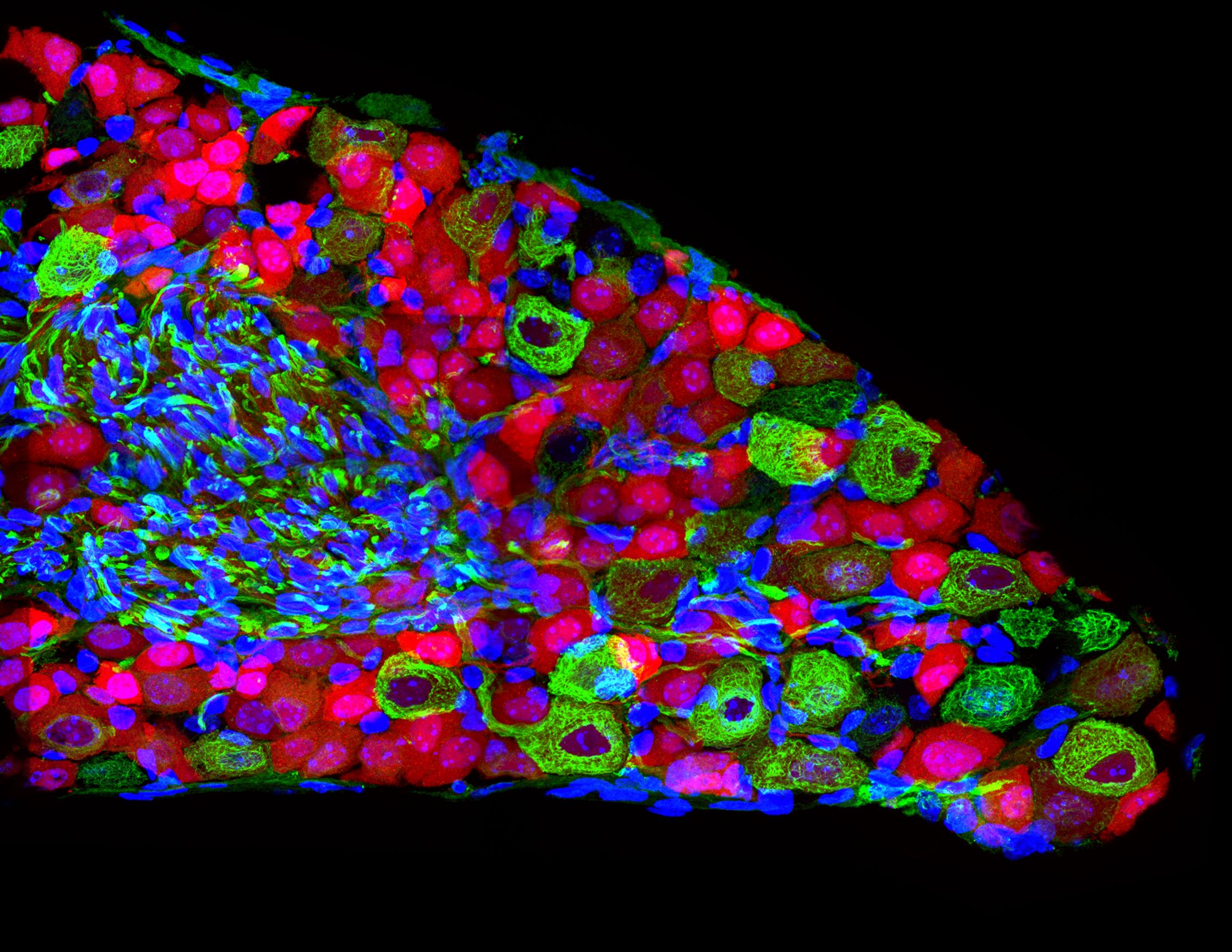Blood vessels deliver oxygen and nutrients throughout the body. The retina is very energetically demanding, and therefore the flow of blood to the retina is carefully regulated. In the course of macular telangiectasia type 2, blood vessels within the retina undergo changes. In fact, blood vessel changes were first used to describe the disease, and MacTel was named for these changes. “Telangiectasia” describes a vascular lesion formed by a small group of dilated blood vessels. In MacTel, this lesion occurs in the center of the retina; the macula. In addition to being dilated, abnormal blood vessels in MacTel patients are often tortuous and leaky.
Telangiectatic vessels are seen in the macula of nearly all MacTel patients, and are often used to diagnose the disease. Blood vessel changes usually start on the temporal side of the macula. Changes are usually restricted to an oval area that is slightly smaller than the area affected by macular pigment loss.
While blood vessel changes are characteristic of the disease, it is now thought that they happen secondary to other changes in the retina. Loss of photoreceptors and Müller cells probably occur before any changes to blood vessels can be seen.
The Lowy Medical Research Institute has a research program dedicated to studying blood vessels in the retina. Researchers study the factors that drive blood vessel changes in the eye, and test potential treatments, in models that replicate the vascular changes seen in MacTel patients. Scientists affiliated with LMRI are also using advanced imaging modalities, such as OCT angiography, to study the blood vessels in MacTel patients. The study of telangiectatic vessels in the retina includes laboratory investigators and clinicians, as well as the geneticists working to identify causal genes.




